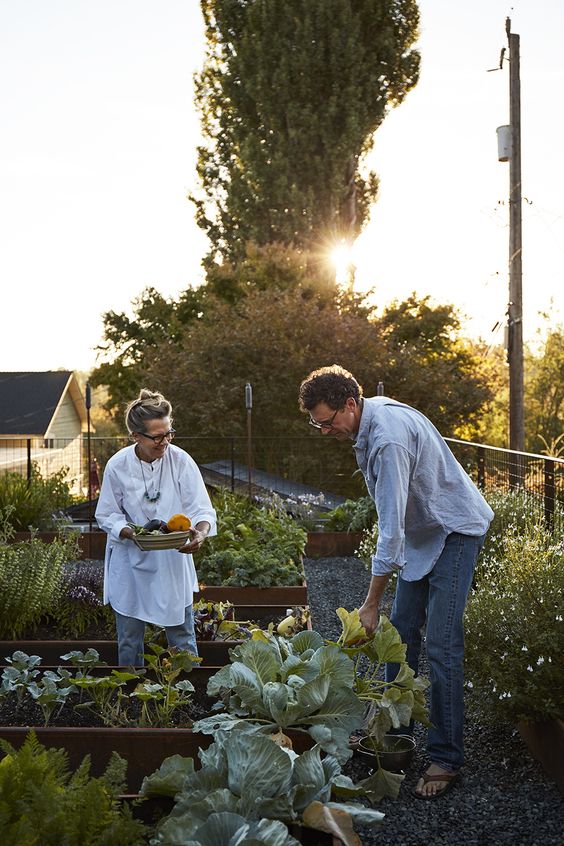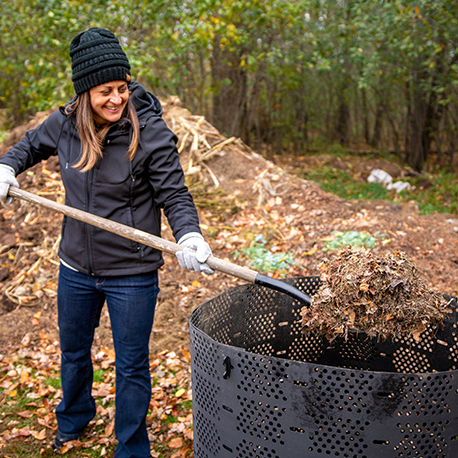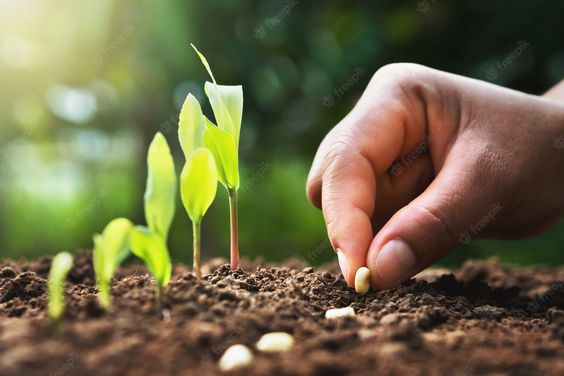Blog
¿Que es una compostera? ¿Para que sirve?
Una compostera es un contenedor o sistema diseñado para facilitar el proceso de compostaje. El compostaje es un método natural de descomposición de materiales orgánicos, como restos de cocina y jardín, para producir compost, que es un material rico en nutrientes utilizado como fertilizante para plantas y suelo.
Te detallo para qué sirven las composteras:
Reducción de Residuos:
- La compostera ayuda a reducir la cantidad de residuos orgánicos que van a los vertederos. Los desechos de cocina, como cáscaras de frutas y verduras, posos de café y restos de alimentos, pueden compostarse en lugar de ser desechados.
Producción de Compost:
- El principal propósito de una compostera es producir compost, un material rico en nutrientes que se utiliza como fertilizante natural. El compost mejora la estructura del suelo, aumenta su capacidad de retención de agua y proporciona nutrientes esenciales para las plantas.
Sostenibilidad:
- El compostaje es una práctica sostenible que cierra el ciclo de nutrientes en la naturaleza. Al reciclar los desechos orgánicos en compost, se devuelve al suelo una valiosa fuente de nutrientes, contribuyendo a la salud del ecosistema.

Importante! ¿Qué tirar a la compostera?
-
Desechos de Cocina:
- Cáscaras de frutas y verduras.
- Posos de café y filtros de café de papel.
- Restos de alimentos no procesados, como cáscaras de huevo trituradas.
-
Residuos de Jardín:
- Hojas secas.
- Recortes de césped.
- Ramas pequeñas y poda de plantas.
-
Papel y Cartón:
- Papel sin brillo ni revestimiento.
- Cartón (sin tintas ni recubrimientos).
-
Material Vegetal:
- Paja o heno sin tratar.
- Restos de plantas no enfermas o infestadas de plagas.
-
Materiales Biodegradables:
- Servilletas y pañuelos de papel.
- Filtros de té y bolsitas de té (sin nylon).
-
Ceniza de Madera (Pequeñas Cantidades):
- Ceniza de madera de fuegos de leña o barbacoas. No utilices cenizas de productos químicos ni de carbón.
-
Material Carbonoso:
- Virutas de madera.
- Pelusa de secadora (si no contiene productos químicos).
-
Cáscaras de Nuez:
- Cáscaras de nueces y otros frutos secos.
-
Peladuras de Frutas y Verduras:
- Peladuras de zanahorias, papas, etc.

Compost Bin: Uses, Benefits, and Environmental Impact
A compost bin is a device designed to break down organic matter, such as food scraps, leaves, and yard waste, into compost. Compost is a nutrient-rich, natural fertilizer that enhances soil quality and promotes plant growth. Here are the uses, benefits, and environmental impact of a compost bin:
Uses of a Compost Bin:
1. Compost Production: The primary purpose of a compost bin is to transform organic waste into compost. By providing the right balance of moisture, oxygen, and temperature, the compost bin accelerates the decomposition process, turning organic matter into nutrient-rich compost.
2. Soil Fertilization: The compost obtained from the compost bin can be used as an organic fertilizer in gardens, vegetable patches, and potted plants. It provides essential nutrients to plants, improves soil structure, increases water retention capacity, and promotes beneficial biological activity.
3. Soil Amendment: In addition to nutrient supply, compost enhances long-term soil quality. It helps balance soil pH, enhances nutrient retention, improves aeration and water infiltration, and stimulates the growth of beneficial microorganisms that contribute to soil health.
4. Waste Reduction: A compost bin allows you to divert organic waste from landfills. By composting food scraps and other plant materials, you reduce the amount of waste sent to landfills and minimize the greenhouse gas emissions associated with anaerobic decomposition.
Benefits and Environmental Impact of a Compost Bin:
1. Reduction of Greenhouse Gas Emissions: Composting in a bin contributes to the reduction of greenhouse gas emissions, such as methane, which are generated in landfills during the decomposition of organic waste. Aerobic composting in a compost bin avoids methane generation and promotes the release of less climate-harming carbon dioxide.
2. Conservation of Natural Resources: By using compost instead of synthetic fertilizers, reliance on non-renewable resources, such as fossil fuels used in fertilizer production, is reduced. Additionally, compost improves water retention in the soil, reducing the need for excessive watering.
3. Enhancement of Soil Health and Biodiversity: Compost enriches the soil, supporting plant health and fostering diverse populations of beneficial microorganisms and organisms in the soil ecosystem. This promotes natural balance, reducing the need for pesticides and harsh chemicals.
In summary, a compost bin offers various uses and benefits, from producing nutrient-rich compost to improving soil quality and reducing waste. Furthermore, it has positive environmental impacts, including the reduction of greenhouse gas emissions and conservation of natural resources.
Planting from Seed: Really Know Your Plants"
When it comes to growing a garden, one of the most important decisions to make is whether to plant from seeds or purchase mature plants. Both options have their advantages, but today we will explore why starting from seeds can be a good choice.
1. Connection with the Growth Process:
Planting from seeds allows you to be part of the entire process of growing a plant, from the beginning. You will witness how a small seed transforms into a robust plant, giving you a deeper connection with your crops. This connection can foster appreciation for plant life and respect for the cycle of nature.

2. Quality Control:
Starting from seed gives you complete control over where your plants come from. You can choose seeds from trusted sources that follow organic practices and avoid the use of pesticides or genetic modifications. This way you will know exactly how your plants were produced and you will be able to maintain the integrity of your crops.
3. Variety and Diversity:
Planting from seeds gives you access to a wide variety of plants and crops. You can experiment with different varieties, colors and flavors that are often not available as mature plants. This diversity enriches your garden and your diet.
4. Reduced environmental impact:
Commercial nursery production often involves the use of resources and energy. By planting from seed, you can reduce your ecological footprint and contribute to more sustainable practices. Additionally, it minimizes the amount of plastic packaging used in nursery plants.
5. Profitability:
Planting from seed is usually more cost effective than purchasing mature plants. A small investment in seeds can result in a bountiful harvest, helping you save money in the long run.
6. Learning and skill development:
Planting from seeds involves a continuous learning process. As you care for your plants from their earliest stages, you develop gardening skills and a deeper understanding of your crops’ needs.
